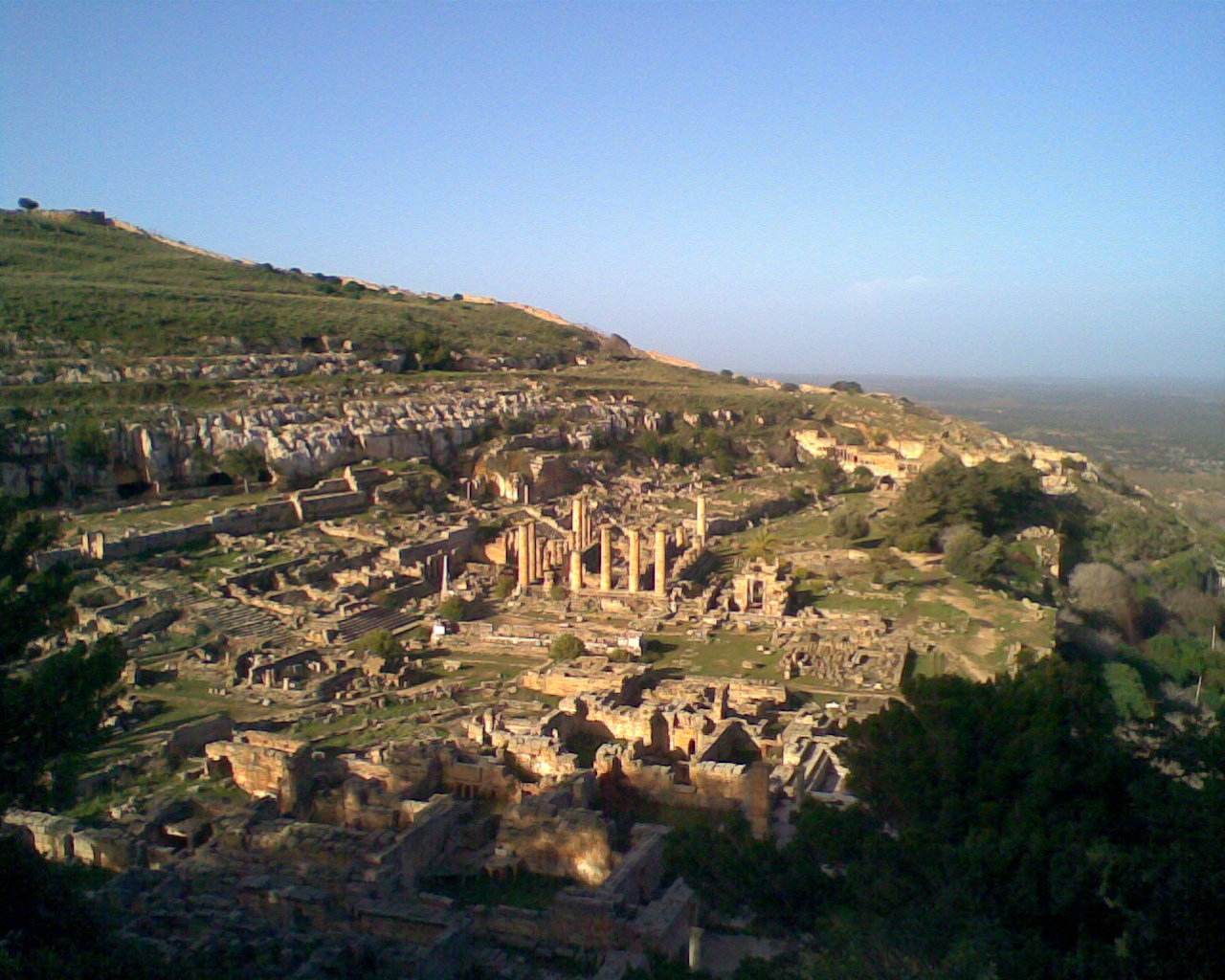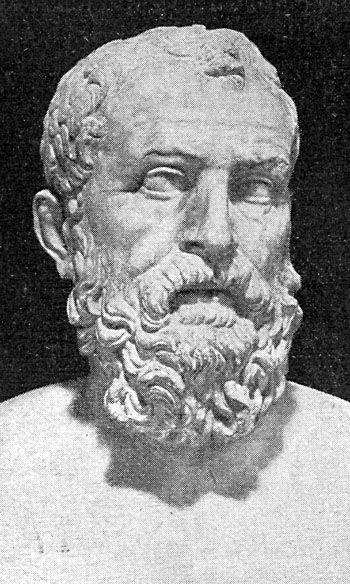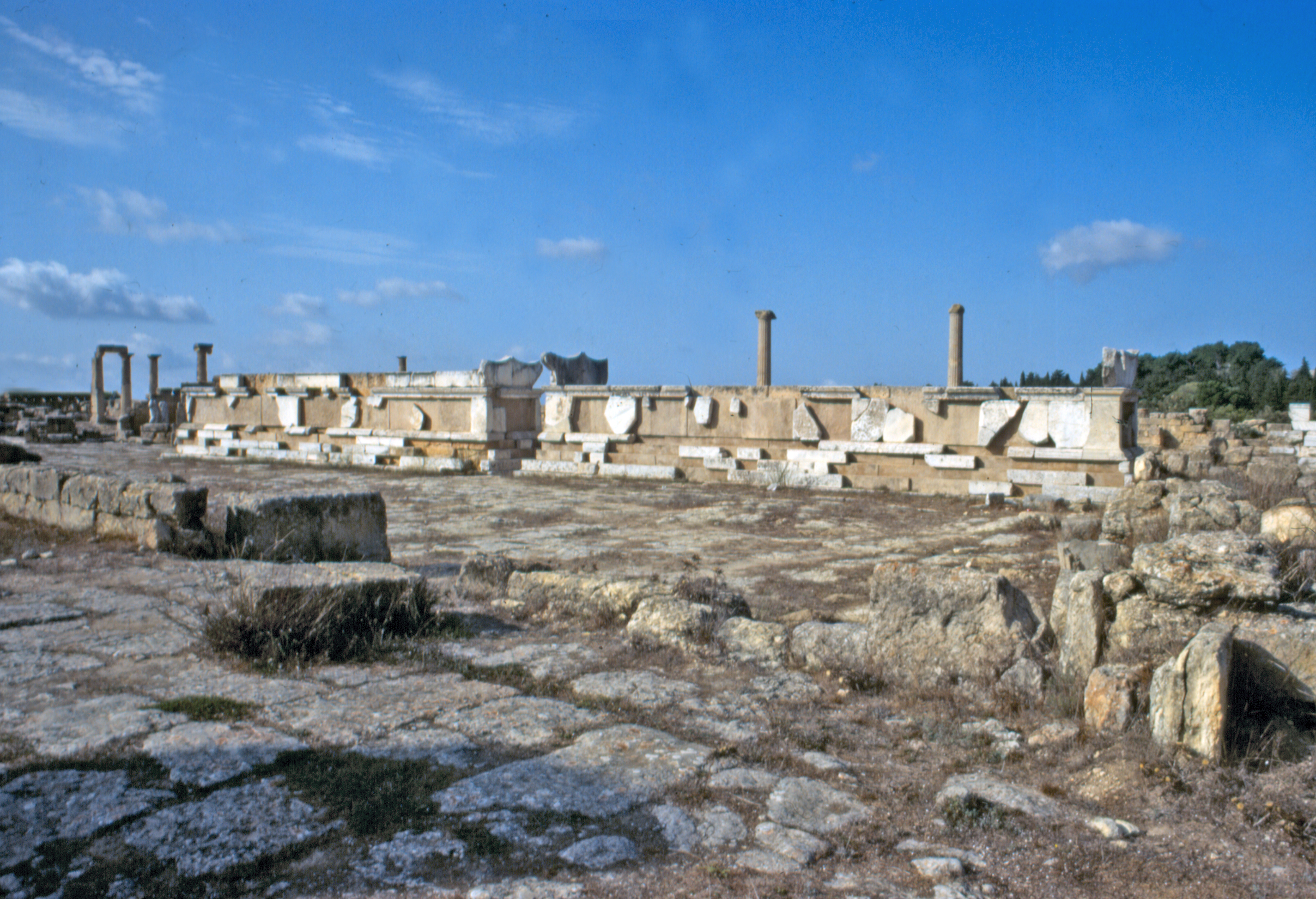|
Anniceris
Anniceris ( grc-gre, Ἀννίκερις; fl. 300 BC) was a Cyrenaic philosopher. He argued that pleasure is achieved through individual acts of gratification which are sought for the pleasure that they produce, but he also laid great emphasis on the love of family, country, friendship and gratitude, which provide pleasure even when they demand sacrifice. Life Anniceris was a disciple of Parabates, and a fellow student of Hegesias. The Suda says he lived at the time of Alexander the Great (ruled 336–323 BC). Diogenes Laertius tells a story that Anniceris ransomed Plato from Dionysius, tyrant of Syracuse, for twenty minas. This may possibly refer to an earlier Anniceris, possibly the celebrated charioteer mentioned by Aelian. Philosophy Anniceris denied that pleasure was merely the absence of pain, for if so death would be a pleasure; and furthermore he denied that pleasure is the ''general'' goal of human life. To each separate action, there is a ''particular'' end, namely the ... [...More Info...] [...Related Items...] OR: [Wikipedia] [Google] [Baidu] |
Cyrenaic
The Cyrenaics or Kyrenaics ( grc, Κυρηναϊκοί, Kyrēnaïkoí), were a sensual hedonist Greek school of philosophy founded in the 4th century BCE, supposedly by Aristippus of Cyrene, although many of the principles of the school are believed to have been formalized by his grandson of the same name, Aristippus the Younger. The school was so called after Cyrene, the birthplace of Aristippus. It was one of the earliest Socratic schools. The Cyrenaics taught that the only intrinsic good is pleasure, which meant not just the absence of pain (as it did for Epicurus), but positively enjoyable sensations. Of these, momentary pleasures, especially physical ones, are stronger than those of anticipation or memory. They did, however, recognize the value of social obligation and that pleasure could be gained from altruistic behaviour. The school died out within a century and was replaced by the philosophy of Epicureanism. History of the school The history of the Cyrenaic school b ... [...More Info...] [...Related Items...] OR: [Wikipedia] [Google] [Baidu] |
Hegesias Of Cyrene
Hegesias ( el, Ἡγησίας; fl. 290 BC) of Cyrene was a Cyrenaic philosopher. He argued that eudaimonia (happiness) is impossible to achieve, and that the goal of life should be the avoidance of pain and sorrow. Conventional values such as wealth, poverty, freedom, and slavery are all indifferent and produce no more pleasure than pain. Cicero claims that Hegesias wrote a book called ἀποκαρτερῶν (''Death by Starvation''), which persuaded so many people that death is more desirable than life that Hegesias was banned from teaching in Alexandria. It has been thought by some that Hegesias was influenced by Buddhist teachings. Life Diogenes Laërtius describes Hegesias as the pupil of Paraebates, who was a pupil of Epitimedes, who was a pupil of Antipater of Cyrene, who was a pupil of Aristippus (c. 435 – c. 360 BC). He was the fellow-student of Anniceris, but he differed from Anniceris by presenting the system which Anniceris softened and improved in its mos ... [...More Info...] [...Related Items...] OR: [Wikipedia] [Google] [Baidu] |
Diogenes Laertius
Diogenes Laërtius ( ; grc-gre, Διογένης Λαέρτιος, ; ) was a biographer of the Greek philosophers. Nothing is definitively known about his life, but his surviving ''Lives and Opinions of Eminent Philosophers'' is a principal source for the history of ancient Greek philosophy. His reputation is controversial among scholars because he often repeats information from his sources without critically evaluating it. He also frequently focuses on trivial or insignificant details of his subjects' lives while ignoring important details of their philosophical teachings and he sometimes fails to distinguish between earlier and later teachings of specific philosophical schools. However, unlike many other ancient secondary sources, Diogenes Laërtius generally reports philosophical teachings without attempting to reinterpret or expand on them, which means his accounts are often closer to the primary sources. Due to the loss of so many of the primary sources on which Diogenes rel ... [...More Info...] [...Related Items...] OR: [Wikipedia] [Google] [Baidu] |
Plato
Plato ( ; grc-gre, Πλάτων ; 428/427 or 424/423 – 348/347 BC) was a Greek philosopher born in Athens during the Classical period in Ancient Greece. He founded the Platonist school of thought and the Academy, the first institution of higher learning on the European continent. Along with his teacher, Socrates, and his student, Aristotle, Plato is a central figure in the history of Ancient Greek philosophy and the Western and Middle Eastern philosophies descended from it. He has also shaped religion and spirituality. The so-called neoplatonism of his interpreter Plotinus greatly influenced both Christianity (through Church Fathers such as Augustine) and Islamic philosophy (through e.g. Al-Farabi). In modern times, Friedrich Nietzsche diagnosed Western culture as growing in the shadow of Plato (famously calling Christianity "Platonism for the masses"), while Alfred North Whitehead famously said: "the safest general characterization of the European philosophical tra ... [...More Info...] [...Related Items...] OR: [Wikipedia] [Google] [Baidu] |
Aristippus
Aristippus of Cyrene, Libya, Cyrene (; grc, Ἀρίστιππος ὁ Κυρηναῖος; c. 435 – c. 356 BCE) was a Hedonism, hedonistic Ancient Greece, Greek philosopher and the founder of the Cyrenaics, Cyrenaic school of philosophy. He was a pupil of Socrates, but adopted a very different philosophical outlook, teaching that the goal of life was to seek pleasure by adapting circumstances to oneself and by maintaining proper control over both adversity and prosperity. His view that pleasure is the only good came to be called ethical hedonism. Despite having two sons, Aristippus identified his daughter Arete of Cyrene, Arete as the "intellectual heiress" of his work. There are indications that Aristippus was conflated with his grandson, Aristippus the Younger. Life Aristippus, the son of Aritades, was born in Cyrene, Libya, Cyrene, Ancient Libya, c. 435 BCE. He came to Greece to be present at the Ancient Olympic Games, Olympic games, where he asked Ischomachus about S ... [...More Info...] [...Related Items...] OR: [Wikipedia] [Google] [Baidu] |
Suda
The ''Suda'' or ''Souda'' (; grc-x-medieval, Σοῦδα, Soûda; la, Suidae Lexicon) is a large 10th-century Byzantine encyclopedia of the ancient Mediterranean world, formerly attributed to an author called Soudas (Σούδας) or Souidas (Σουίδας). It is an encyclopedic lexicon, written in Greek, with 30,000 entries, many drawing from ancient sources that have since been lost, and often derived from medieval Christian compilers. Title The derivation is probably from the Byzantine Greek word ''souda'', meaning "fortress" or "stronghold", with the alternate name, ''Suidas'', stemming from an error made by Eustathius, who mistook the title for the author's name. Paul Maas once ironized by suggesting that the title may be connected to the Latin verb ''suda'', the second-person singular imperative of ''sudāre'', meaning "to sweat", but Franz Dölger traced its origins back to Byzantine military lexicon (σοῦδα, "ditch, trench", then "fortress"). Silvio Giuse ... [...More Info...] [...Related Items...] OR: [Wikipedia] [Google] [Baidu] |
Alexander The Great
Alexander III of Macedon ( grc, wikt:Ἀλέξανδρος, Ἀλέξανδρος, Alexandros; 20/21 July 356 BC – 10/11 June 323 BC), commonly known as Alexander the Great, was a king of the Ancient Greece, ancient Greek kingdom of Macedonia (ancient kingdom), Macedon. He succeeded his father Philip II of Macedon, Philip II to the throne in 336 BC at the age of 20, and spent most of his ruling years conducting a lengthy military campaign throughout Western Asia and ancient Egypt, Egypt. By the age of thirty, he had created one of the List of largest empires, largest empires in history, stretching from Greece to northwestern Historical India, India. He was undefeated in battle and is widely considered to be one of history's greatest and most successful military commanders. Until the age of 16, Alexander was tutored by Aristotle. In 335 BC, shortly after his assumption of kingship over Macedon, he Alexander's Balkan campaign, campaigned in the Balkans and reasserted control ... [...More Info...] [...Related Items...] OR: [Wikipedia] [Google] [Baidu] |
Dionysius I Of Syracuse
Dionysius I or Dionysius the Elder ( 432 – 367 BC) was a Greek tyrant of Syracuse, in Sicily. He conquered several cities in Sicily and southern Italy, opposed Carthage's influence in Sicily and made Syracuse the most powerful of the Western Greek colonies. He was regarded by the ancients as an example of the worst kind of despot—cruel, suspicious and vindictive. Endnotes: * Diod. Sic. xiii., xiv., xv. *J. Bass, ''Dionysius I. von Syrakus'' (Vienna, 1881), with full references to authorities in footnotes Early life of Dionysius the Elder Dionysius began his working life as a clerk in a public office. Because of his achievements in the war against Carthage that began in 409 BC, he was elected supreme military commander in 406 BC. In the following year he seized total power and became tyrant. He was married to Aristomache, and had a daughter by her, Arete. He was married at the same time to Doris of Locris, who bore him his son, Dionysius II of Syracuse. Rise to power Dionysiu ... [...More Info...] [...Related Items...] OR: [Wikipedia] [Google] [Baidu] |
Mina (unit)
The mina (also mĕnē, Aramaic; ) is an ancient Near Eastern unit of weight, which was divided into 60 shekels. The mina, like the shekel, was also a unit of currency. History The word mina comes from the ancient Semitic root / 'to count', Akkadian , he, מָנָה (), arc, מָנָה, script=Hebr/ (/), syc, ܡܢܳܐ (), uga, 𐎎𐎐, mn. It is mentioned in the Bible, where Solomon is reported to have made 300 shields, each with 3 "mina" of gold ( he, מָנֶה, mane, links=no), or later after the Edict of Cyrus II of Persia the people are reported to have donated 5000 mina of silver for the reconstruction of Solomon's Temple in Jerusalem. From earliest Sumerian times, a mina was a unit of weight. At first, talents and shekels had not yet been introduced. By the time of Ur-Nammu (shortly before 2000 BCE), the mina had a value of talent as well as 60 shekels. The weight of this mina is calculated at . Writings from Ugarit give the value of a mina as equivalent to fifty ... [...More Info...] [...Related Items...] OR: [Wikipedia] [Google] [Baidu] |
Claudius Aelianus
Claudius Aelianus ( grc, Κλαύδιος Αἰλιανός, Greek transliteration ''Kláudios Ailianós''; c. 175c. 235 AD), commonly Aelian (), born at Praeneste, was a Roman author and teacher of rhetoric who flourished under Septimius Severus and probably outlived Elagabalus, who died in 222. He spoke Greek so fluently that he was called "honey-tongued" ( ); Roman-born, he preferred Greek authors, and wrote in a slightly archaizing Greek himself. This cites: * ''Editio princeps'' of complete works by Gesner, 1556; Hercher, 1864-1866. * English translation of the ''Various History'' only by Fleming, 1576, and Stanley, 1665 * Translation of the ''Letters'' by Quillard (French), 1895 His two chief works are valuable for the numerous quotations from the works of earlier authors, which are otherwise lost, and for the surprising lore, which offers unexpected glimpses into the Greco-Roman world-view. It is also the only Greco-Roman work to mention Gilgamesh. ''De Natura Animalium'' ... [...More Info...] [...Related Items...] OR: [Wikipedia] [Google] [Baidu] |
4th-century BC Births
The 4th century (per the Julian calendar and Anno Domini/Common era) was the time period which lasted from 301 ( CCCI) through 400 ( CD). In the West, the early part of the century was shaped by Constantine the Great, who became the first Roman emperor to adopt Christianity. Gaining sole reign of the empire, he is also noted for re-establishing a single imperial capital, choosing the site of ancient Byzantium in 330 (over the current capitals, which had effectively been changed by Diocletian's reforms to Milan in the West, and Nicomedeia in the East) to build the city soon called Nova Roma (New Rome); it was later renamed Constantinople in his honor. The last emperor to control both the eastern and western halves of the empire was Theodosius I. As the century progressed after his death, it became increasingly apparent that the empire had changed in many ways since the time of Augustus. The two emperor system originally established by Diocletian in the previous century fell in ... [...More Info...] [...Related Items...] OR: [Wikipedia] [Google] [Baidu] |







